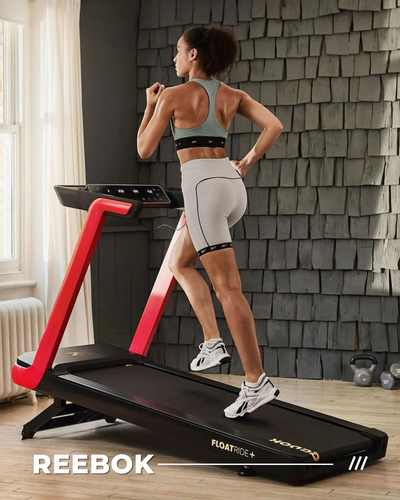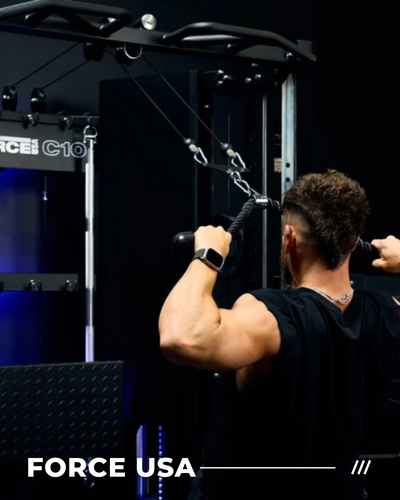Choosing the Right Barbell: Different Types of Barbells for Different Types of Lifts
GYMSPORTZ PTE LTD | 14 Aug 2024


What's the difference between a powerlifting, weightlifting, mixed-use, and specialty bar?
They may look similar, but all barbells are not for all kinds of lifts. Try to do a snatch with a squat bar or a heavy bench press with a super spinny weightlifting barbell, and you’ll immediately see why. (Actually, no, please don't try that.)
There are four main styles of barbells: powerlifting, Olympic weightlifting, mixed-use, and specialty. These each come with different characteristics ideal for different kinds of lifts:
• Sleeve construction refers to how the sleeves are built and how they rotate. Olympic weightlifting benefits from a faster, smooth spin (bearing sleeves). Powerlifting bars feature slower-rotating bushing sleeves. Functional fitness/X-fit's best fit is a mixed-use bar that can do it all.
• Bearing sleeves are typically used for faster sleeve turnover. Bearings essentially roll around the sleeve. There are three different types of bearings: needle bearings, ball bearings, and inner race needle bearings.
• Bushing sleeves no moving parts inside. There is friction between the surface of the bushing and the surface of the shaft, so it doesn’t rotate as freely as a bearing. You can find three types of bushing sleeves: bronze bushings, composite bushings, and brass bushings.
• Knurling is the crosshatch pattern on the shaft that increases the grip of your hands on the bar.
• Knurl markings are small, smooth marks in the knurling on a bar to help lifters set up properly for a lift and provide a visual for even hand placement.
• Not sure what another term means? Check out our Strength Sports Dictionary.
Here’s a quick rundown of what distinguishes each category to help you pick the best bar for your goals.
Powerlifting Bars

Uses: Primarily to squat, bench press, and deadlift (although some powerlifters/associations use specialty bars for squats and deadlifts)
Weight: 20kg (44.1lbs)
Standard diameter: 28-29mm
Sleeve construction: Bushing. A bushing is a metal sleeve with no moving parts inside. It’s ideal for slower, strength-focused lifts.
Knurl marks: International Powerlifting Federation standard distance (32” apart)
Center knurling: Yes, to help hold it in place during back squats
Best powerlifting bars: https://repfitness.com/blogs/guides/best-barbells-for-powerlifters
Olympic Weightlifting Bars

Uses: Primarily to snatch and clean and jerk
Weight: 20kg (44.1lbs) for men and 15kg (33.1lbs) for women
Standard diameter: 28mm for men and 25mm for women
Sleeve construction: Bearing. Bearings are typically used for faster sleeve turnover. Bearings essentially roll around the sleeve.
Knurl marks: International Weightlifting Federation standard distance (36” apart)
Center knurling: Yes (passive) for men and no for women
Best weightlifting bars: https://repfitness.com/blogs/guides/best-barbells-for-olympic-weightlifting
Mixed-Use Bars

Uses: Functional fitness exercises, X-fit, weightlifting, powerlifting. These bars can do everything.
Weight: General mixed use: 20kg (44.1lbs). For X-fit training: 20kg (44.1lbs) for men and 15kg (33.1lbs) for women
Standard diameter: 28-29" for men and 25” for women
Sleeve construction: Hybrid, ball-bearing, or composite bushing
Knurl marks: Dual knurling marks (both IPF and IWF)
Center knurling: No
Best mixed-use bars: https://repfitness.com/blogs/guides/best-bars-for-functional-fitness
Specialty Bars

Uses: Various uses, depending on the bar. Specialty bars include:
• Safety Squat Bar
• Cambered Swiss Bar
• Curl Bar
Rackable Curl Bar
• Trap Bar
• Axle Bar
• Open Trap Bar
Farmer’s Walk Handles
• Deadlift Bar
• Squat Bar
The weight, diameter, sleeves, knurl marks, and center knurling varies by bar.
Best specialty bars: https://repfitness.com/blogs/guides/specialty-barbells-how-to-use-them-and-why







